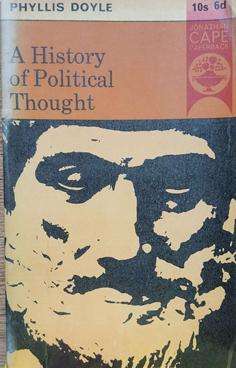
A history of political thought - Phyllis Doyle
Check my rate
| Main centres: | 1-3 business days |
| Regional areas: | 3-4 business days |
| Remote areas: | 3-5 business days |

| Main centres: | 1-3 business days |
| Regional areas: | 3-4 business days |
| Remote areas: | 3-5 business days |
A History of Political Thought by Phyllis Doyle is a comprehensive and accessible exploration of political philosophy, tracing the evolution of political ideas from ancient Greece to the early 20th century. First published in 1933, the book offers readers a clear and engaging narrative of the development of political thought, making complex ideas understandable without oversimplifying them.
Doyle's work is structured chronologically, beginning with the political theories of ancient civilizations and moving through the Middle Ages, the Renaissance, the Enlightenment, and into modern political thought. Each chapter focuses on key thinkers and their contributions to political philosophy, providing context for their ideas and examining their impact on subsequent political developments.
The book delves into the works of influential philosophers such as Plato, Aristotle, Machiavelli, Hobbes, Locke, Rousseau, and Marx, among others. Doyle examines their theories on topics like justice, the nature of the state, individual rights, and the role of government, highlighting the diversity of thought and the debates that have shaped political discourse over the centuries.
One of the strengths of Doyle's approach is her ability to connect philosophical ideas to historical events and movements, illustrating how political theories have been applied and tested in real-world situations. This historical context enriches the reader's understanding of the material and demonstrates the relevance of political thought to contemporary issues.
While the book is scholarly in its depth, it is also written in a style that is accessible to general readers with an interest in political philosophy. Doyle avoids jargon and technical language, making the complex ideas of political theorists approachable without sacrificing intellectual rigor.
A History of Political Thought remains a valuable resource for students, scholars, and anyone interested in understanding the development of political ideas and their influence on modern society. Its clear narrative and insightful analysis provide a solid foundation for further exploration of political philosophy.